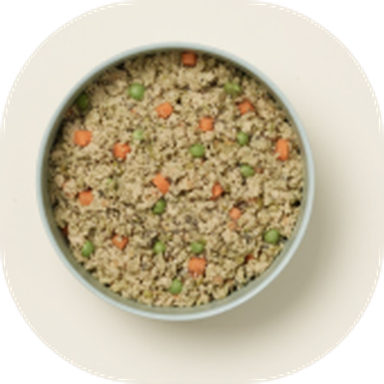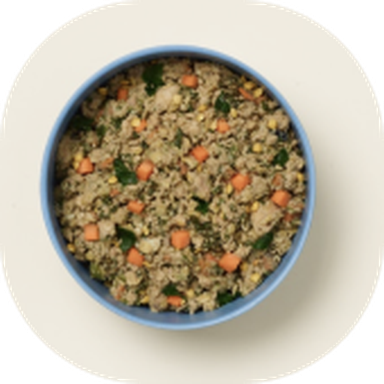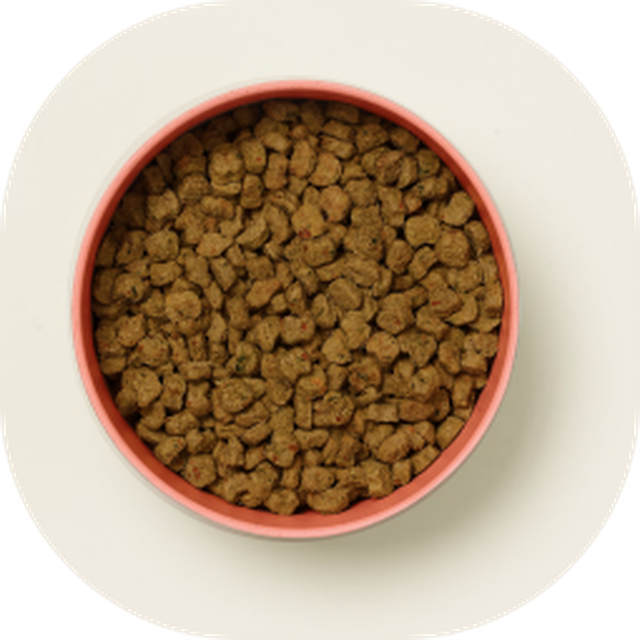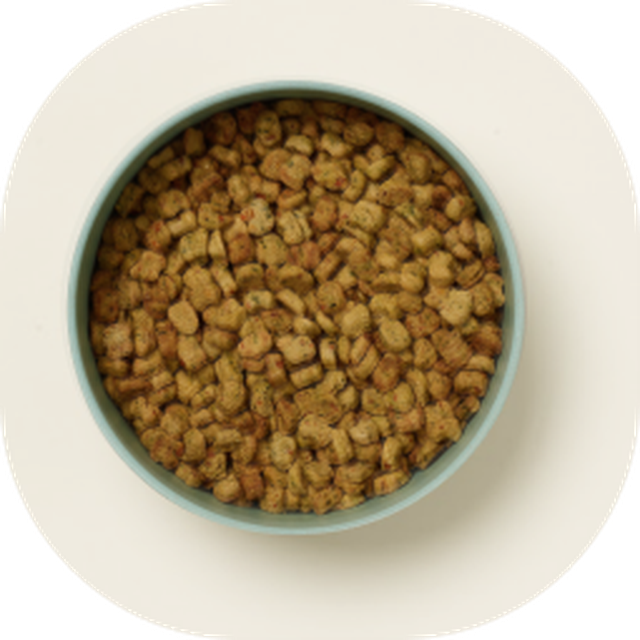Hey Ollie blog readers! We’re offering you an exclusive 60% OFF your starter box! Try now!
Heartworms are a risk for your pup. From the city to the suburbs you pup can be infected no matter where you live. We explore ways to protect your pup from this dangerous paracite.
What are heartworms?
Heartworm is caused by a parasitic worm called Dirofilaria immitis. These worms are spread to your dog through mosquito bites. Heartworm can cause severe lung disease, heart failure, other organ damage, and death. In this paracitic relationship, the dog is the definitive host. This means that the worms mature into adults, mate, and produce offspring while living inside the dog. The mosquito is the intermediate host, which means the worms live inside a mosquito for a short period in order to become infective (able to cause heartworm disease). The worms are called “heartworms” because the adults live in the heart, lungs, and associated blood vessels of an infected animal.

The American Heartworm Society reminds pet parents:
- Dogs have been diagnosed with heartworm disease in every state in the U.S.
- Heartworms are spread by mosquitoes, so any area of the country that has mosquitoes—even just a few of them—can also have heartworm disease.
- Dogs don’t just need prevention during warm-weather months. Heartworm preventives work by treating heartworms that already infected the pet within the past month or longer; meanwhile, preventives need to be given on time, every time to be effective. That’s why the American Heartworm Society recommends year-round heartworm prevention for pets.
- The American Heartworm Society estimates that more than a million dogs in the U.S. have heartworm disease—and heartworm disease can be fatal.
- Cats and ferrets can also get heartworm disease.
- Heartworm preventives are safe, relatively inexpensive and easy to give, but if a dog becomes infected, heartworm treatment can be costly and difficult, requiring multiple veterinary visits and months of exercise restriction.
- While there are drug-free strategies owners can put in place to reduce a pet’s exposure to mosquitoes, there’s no such thing as a “natural” heartworm preventives.

How is heartworm diagnosed in my dog?
Your vet will perform a simple blood test to determine if your dog has heartworm. This test will be performed when your dog leaves a shelter (if the dog was positive) and annually. If your pup has not been on heartworm prevention medication, your vet will perfom the test to ensure your pup is negative before prescribing or recommending a preventive treatment.

What are the options for preventing my dog from getting heartworms?
There are many options for protecting your pup from heartworm. The most common are monthly preventatives that usually come in a chewable form. Other treatment options include topical gels that are applied to your pet’s fur, usually between the shoulder blades, or an injection every 6-12 months.
Deciding which of these treatments to use will depend on a number of factors including access to medication, ease of treatment, pet’s tolerance and cost.
Oral Treatment
Some of the more popular brands of heartworm chewables on the market include Heartguard, Interceptor Plus, Sentinel and Trifexis. They can be ordered through your vet’s office or an online pharmacy like Chewy.com or 1-800-Pet-Meds. If you order online, you will still need a prescription form your dog’s vet.
Heartguard – Active ingredients: Ivermectin and Pyrantel.
Interceptor Plus – Active ingredients: Milbemycin Oxime and Praziquantel
Sentinel – Milbemycin Oxime and Lufenuron
Trifexis – Spinosad and Milbemycin Oxime
Topical Treatment
Two popular topical treatments are Revolution and Advantage Multi. Note that topical treatments can cost as much as double the what oral treatments cost. These are also available through your vet’s office or an online pharmacy like Chewy.com or 1-800-Pet-Meds. These treatments also require a perscription from the vet.
Revolution – Active ingredients are Selamectin, Butylated Hydroxytoluene, Isopropyl Alcohol
Advantage Multi – Active ingredients are Imidacloprid and Moxidectin
Injectable
ProHeart 12, manufactured by Zoetis Petcare is the only once-yearly injection to prevent heartworm disease† in dogs.
There is also a version called ProHeart 6, which will protect your pup for 6 months. If your dog is older than 6 months but younger than one year, Zoetis recommends that your dog be given ProHeart 6.
Are there risks of heartworm preventatives?
Yes, like all prescription medication there is a risk of side effects. Regardless of the treatment type the most common side effects were diarrhea, vomiting and lethargy. Review the safety information for the preventative type you choose before giving the preventative to your pup and discuss concerns with your vet.
If your dog is not healthy, your vet may discuss alternative prevention strategies with you and more frequent testing for heartworms.
What are prescription free options for preventing heartworm?
There don’t seem to be many good ones. According to a 2006 article from Whole Dog Journal “Some holistic practitioners recommend various herbal or homeopathic preparations for heartworm prevention, and anecdotal evidence from some dog owners can be found on many discussion lists devoted to natural dog care. However, consumers should be aware that none of these alternatives have been studied for safety or efficacy, nor are there any studies indicating that they are effective at protecting against heartworm infection. In addition, some herbal dewormers, such as wormwood and black walnut, are potentially toxic when used at dosage levels needed to control intestinal parasites.”
The bottom line, discuss the risks of using heartworm medication with your vet and come up with a good plan to protect your best friend from these deadly parasites.
The Ollie blog is devoted to helping pet parents lead healthier lives with their pups. If you want to learn more about our fresh, human-grade food, check out MyOllie.com.
Tagged As:

The nutrition your dog needs,
the food they want.

Enjoying our articles? Subscribe our Newsletters and get new articles directly to your inbox
You might also like
26 April 2024
4 MINS READ
How Often Should I Take My Dog To The Vet?
Routine veterinary care is important for your dog’s overall health—but how often should your pup visit the vet? We answer this question and outline common health signs that warrant a veterinary…
by Ollie Pets
28 February 2024
6 MINS READ
Why Do Dogs Eat Poop & How to Stop It
Does your dog partake in poop? We get to the bottom of this unusual behavior, including its medical and behavioral causes, and how to address it.
by Ollie Pets
30 August 2023
6 MINS READ
Dog Diarrhea: How to Prevent and Resolve
Dog diarrhea is distressing for pups and their owners. Understanding common diarrhea causes can help you respond quickly and effectively to your pup’s intestinal issues.













